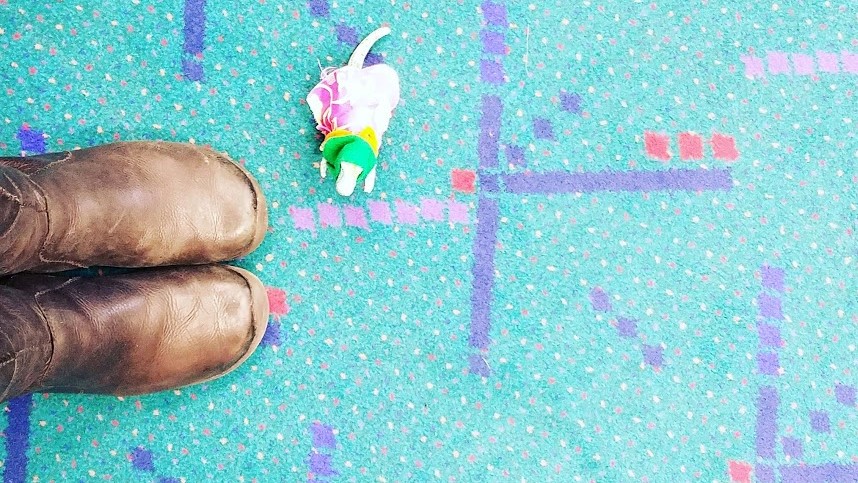When the person next to you on an airplane asks what you do for work, what do you say? Personally, I always dread this question. Don’t get me wrong – I’m proud to be a rabbi. I just don’t particularly enjoy the conversations with strangers about religion, faith, God, or Israel that inevitably result following this revelation. If pushed to answer, I share that I’m a teacher (which is technically true). When I’m stuck next to someone at 30,000 feet, I simply want to blend in and focus on my book or movie, rather than try to explain my philosophy of Jewish education and the state of American Jewry.

I’m sure you can pinpoint those times in life when you find yourself desperately trying to fit in, to find whatever the norm is and to be that. Maybe you base your sense of style on what the fashion world tells us is trendy, or maybe you smile and nod during discussions of sports even if you have no interest in the teams. Sometimes it’s a tricky balancing act to be true to yourself and simultaneously be whatever we think of as the average “every person.”
The Torah tells us this isn’t a new conundrum. Parshat Vayigash, our Torah portion for this week, is the continuation of the saga between Joseph and his brothers. Yehudah, one of the master perpetrators of the evil against Joseph, stands up for his brothers and requests to be imprisoned rather than Benjamin. Later, Joseph reveals himself to his brothers, and his brothers tell Jacob that Joseph is still alive. Then, the 70 members of Jacob’s people follow him down to Egypt, the family is reunited, and there’s effectively a pause in the narrative.
In chapters 46 and 47 of the book of Genesis, Joseph introduces his brothers to Pharaoh. But before he introduces them, he tells them to say that they are breeders of livestock, not shepherds. His reasoning is that in Egypt shepherds are held in low esteem. But instead of following that suggestion, the brothers remain true to themselves and answer that they are shepherds like their father. Interestingly, Pharaoh responds not by looking down on the brothers, but by elevating them to be in charge of the royal flocks and herds.
The brothers in Parshat Vayigash are proud to be themselves. They don’t shy away from their lineage or profession because someone suggests that it might not be “cool.” Instead, they share their true identity and are rewarded for doing so.
Perhaps there’s a lesson here for all of us, including me and my conversations with strangers on airplanes. We would do well to wear our true selves with pride. Our Torah portion reminds us that the ultimate show of respect is first to respect yourself. That’s how we bring blessing into the world.
– Rabbi Eve Posen



